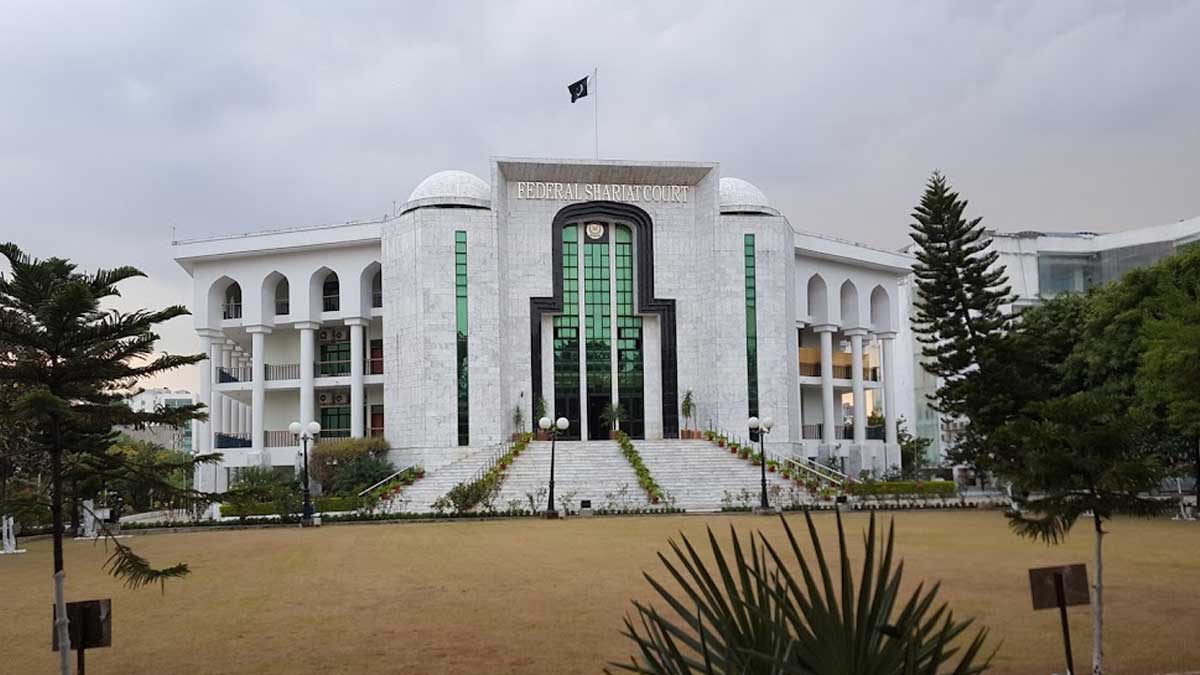The Federal Shariat Court (FSC) issued a decision in a long-running case on Riba (interest), ruling the current interest-based banking system to be against Sharia and ordering the government to make all loans interest-free.
The court ordered that the federal government and provincial governments must update existing legislation and provide directives that the country’s banking system be interest-free by December 2027 in its long-awaited decision.
When it came to usury, the court found that banks were getting more than the loan amount. “The Islamic banking system is risk-free and resistant to exploitation,” said Justice Dr Syed Muhammad Anwar.
“Nearly two decades have passed, but governments have made no rulings opposing the riba based banking system,” remarked Justice Anwar.
Read more: Federal Shariat Court says 100% Haq Mehr must be returned in khula cases
The court also declared the Interest Act of 1839, which facilitates interest, to be unconstitutional.
On April 12, the FSC had reserved its decision in the matter.
The full FSC bench, which included Chief Justice Muhammad Noor Meskanzai, Justice Dr Syed Muhammad Anwar, and Justice Khadim Hussain M Shaikh, had listened a number of constitutional petitions challenging the country’s interest-based banking system and had secured its decision until the parties’ lawyers had finished their arguments.
The ban of Riba based banking system is the “cornerstone of the Islamic economic system,” according to the written verdict.
“As a result, we have concluded that any loan that takes any extra premium from the debtor in excess to the due loan is Riba, and that every transaction including Riba, even in the tiniest amount, is Riba and thus illegal. Additionally, all common types of interest, whether in banks or private transactions, are included in the definition of Riba.”
The FSC stated that interest-free banking’s “speedy proliferation and exponential growth” in not only the Pakistan but throughout the Islamic world and even globally is “a reality that has shown that the interest-free banking system is not only realistic but also practicable.”
“Hence, we do not consent with the Federal Government’s concerns that the adoption of interest-free banking in Pakistan’s economic system will have a detrimental effect on the country economy system,” the judges said.
“Eliminating Riba from our economic system is our religious as well as constitutional duty,” the judgement continued, “therefore it must be abolished from Pakistan.”
The Abolition of Riba-Based Banking System Case
On June 30, 1990, the first petition for the termination of the country’s interest-based banking system was submitted in the FSC.
Dr Tanzeelur Rehman, the then-chief justice of the FSC, convened a three-member panel, which handed down its decision on November 14, 1991, and demanded that it be implemented by April 30, 1992. The verdict was appealed in the Supreme Court by the then-PML-N administration.
Years later, on December 23, 1999, the Supreme Court supported the FSC’s ruling and ordered that it be put into effect by June 30, 2000.
Following that, in 2002, a review challenge was lodged with the Supreme Court, and on June 24, 2002, the Shariah Court’s ruling was stayed, and the case was returned back to the FSC for Riba translation.
For the past 19 years, a case against the interest rate system had been ongoing at the Shariat Court. Since then, nine chief justices of the FSC have served their terms, but the case has remained unresolved until the verdict was released on April 29, 2022.





















